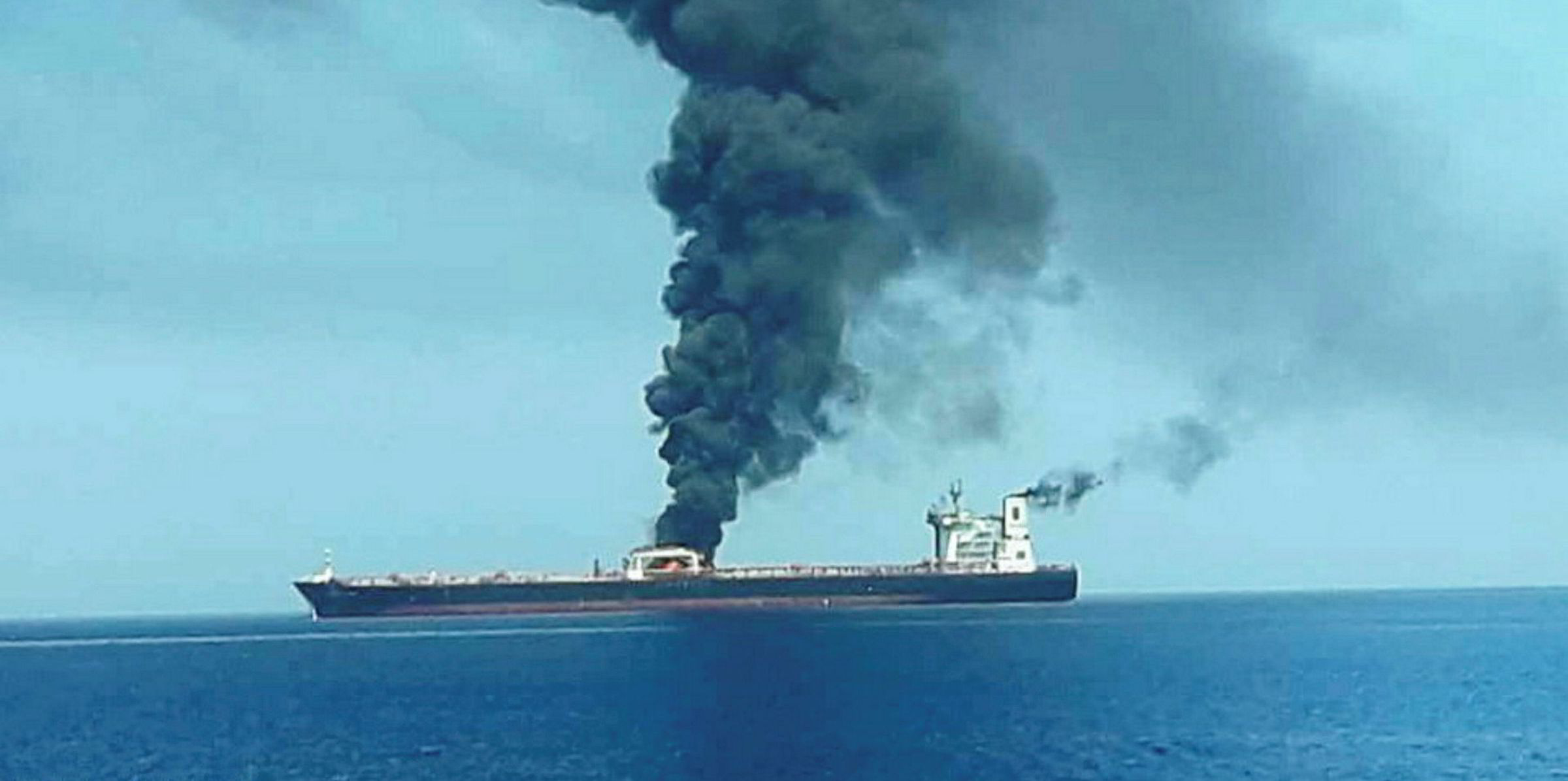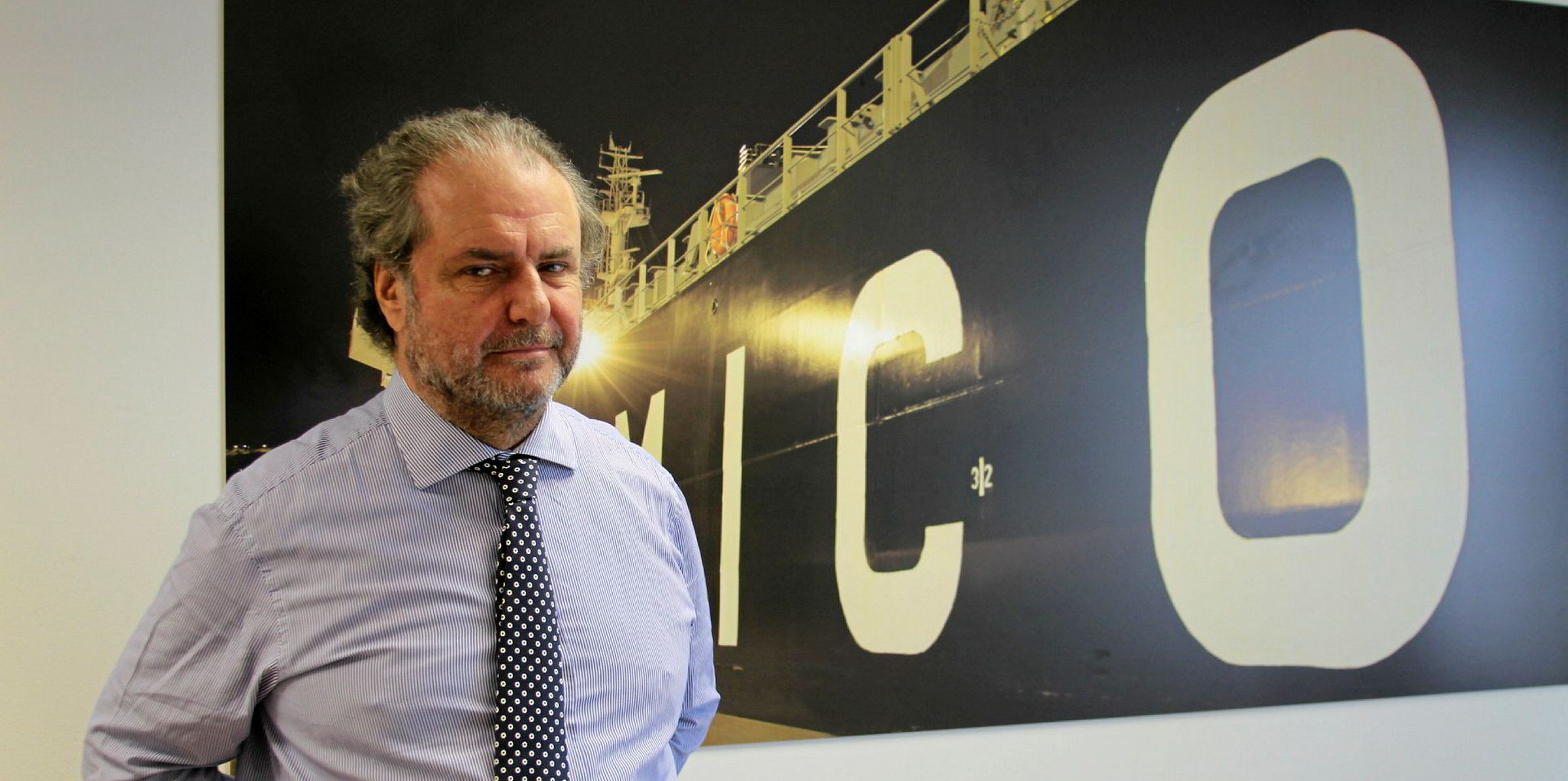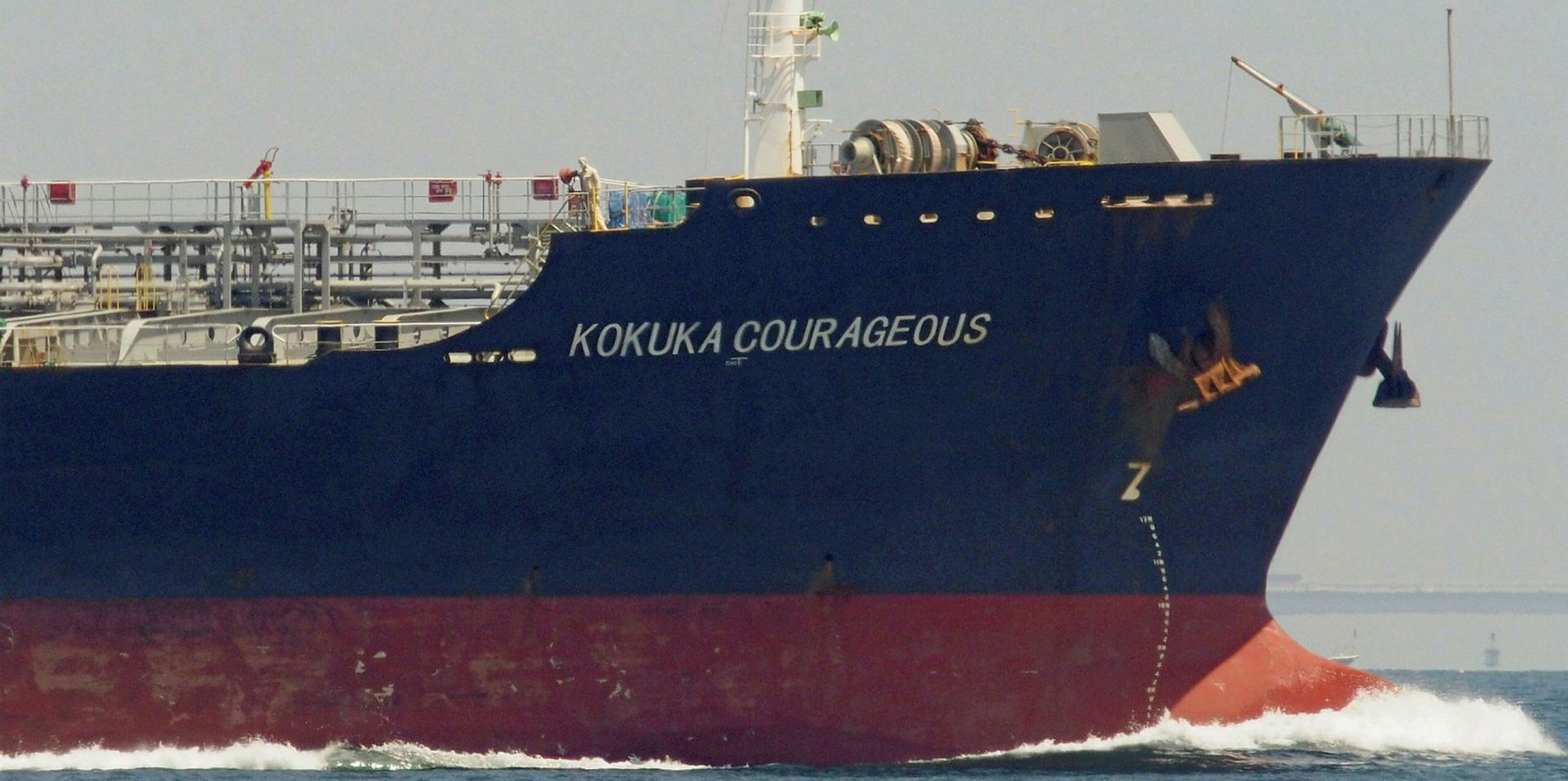Iran's foreign minister is raising questions about this morning's attack on two tankers near the Strait of Hormuz — where nearly a third of all crude oil passes each day — as US officials cast blame on the Islamic republic.
"Suspicious doesn't begin to describe what likely transpired this morning," Iranian official Javad Zarif tweeted this morning, following a suspected torpedo attack on tankers operated by Frontline and Bernhard Schulte.
Zarif pointed out one of the tankers was "Japan-related" — the 27,000-dwt Kokuka Courageous (built 2010) is owned by Japan's Kokuka Sangyo — and that the country's prime minister, Shinzao Abe, is in Iran for "extensive and friendly talks".
Meanwhile, CBS News reports a US defence official said it was "highly likely" Iran was behind the attacks.
Bernhard Schulte confirmed today that theKokuka Courageous suffered a hull breach above the water line in a suspected attack. The German shipmanager said all crew members were safe and only a single, minor injury was reported.
The ship was carrying methanol from Singapore to Saudi Arabia.
The other tanker, the 110,000-dwt Front Altair (built 2016), laden with Emirati naphtha set for Taiwan, was reportedly hit by three explosions and caught fire.
Its crew was picked up by the nearby 30,100-dwt Hyundai Dubai (built 2011), then handed over to an Iranian rescue team.
Frontline Management chief executive Robert Hvide Macleod said the company was investigating the reason for the explosions and denied that the tanker has sunk.
Beyond the US and Iran statements, other entities have taken more measured approaches.
The Financial Times reported EU foreign policy head Helga Maria Schmid expressed "clear concern" over the Thursday attacks alongside Omani officials while on a pre-arranged visit.
IMO Secretary-General Kitack Lim said these attacks, and another last month, concern him greatly.
"The threat to ships and their crews, peaceably going about their business, is intolerable. I urge all Member States to redouble their efforts to work together to find a lasting solution to ensure the safety and security of international shipping around the globe and protection of the marine environment.
June's attacks saw four tankers allegedly sabotaged in roughly the same region as Thursday's attack.
A report from the the Norwegian Shipowners' Mutual War Risks Insurance Association alleged the Iranian Revolutionary Guard was "highly likely" to be responsible for that attack, which Iran denies.
The insurer said the attacks were carried out by underwater drones carrying high-grade explosives. Further, shrapnel found on one of the four tankers is similar to shrapnel from drone boats used by Iran's allies in the Yemeni civil war.
The recent attacks come amidst escalating tensions between Iran and the U.S., which pulled out of a 2015 deal that would allow Iran back into the global oil trade in exchange for altering its nuclear programme.
Abe is in Tehran reportedly in an attempt to ease tensions between the two countries, though Iran's supreme leader Ayatollah Ali Khamenei has stated he would "never" go back to the negotiating table with the US.






